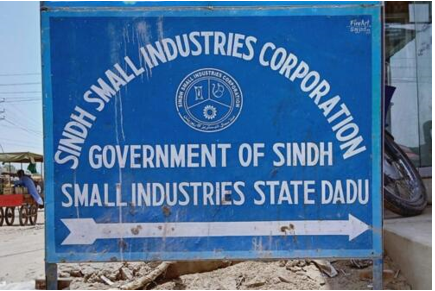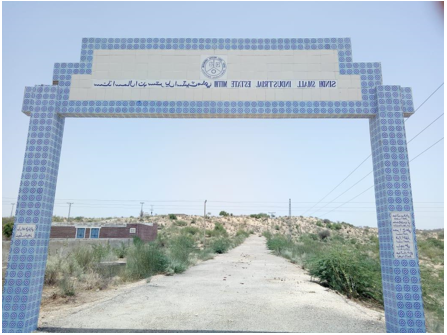i INP-WEALTHPK
Ahmed Khan Malik
The Sindh Small Industries Corporation (SSIC) is working on strategies to increase inclusive and sustainable business practices through technology and innovation in the small industries sector, reports WealthPK.

These plans aim at upscaling the small industries, encouraging their digital transformation and upgrading skills as well as strengthening and expanding a well-coordinated business support network. The plans also include developing a training program for the staff of relevant government departments and their affiliated office sto enhance their capacity throughout the province, Rafiq Otho, Coordinator of SSIC, told WealthPK.

Additionally, the plans aim to expand the mandate of Sindh Enterprise Development Fund (SEDF) and broaden the scope of SSIC to include industry financing. Odho said Sindh is unique in the sense that it is home to Karachi that has a vibrant entrepreneurial ecosystem with progressive and innovative businesses. The private sector has been receptive to technological modernization and innovation, to enhance value-addition and competitiveness. “Leveraging Karachi’s potential as a metropolitan, port city, and the financial capital of the country for modern technological adoption can facilitate the development of niche markets in the global value-chain, particularly in products and services where the province has a competitive advantage,” he said. He noted that Sindh could develop a Triple-Helix Model to drive technology and innovation reforms in the province.
This approach can create strong linkages among the universities, industries and the government, generating a new institutional and social framework for the production, transfer, and application of knowledge. “The government’s role should be to provide an enabling environment for entrepreneurs and enterprises to adopt technology and innovative practices for value-addition in products and services,” he said. He pointed out that a significant constraint for SMEs, especially small enterprises, is the lack of adequate skills to compete and succeed in the global market. One of the reasons for this skill gap might be a mismatch between demand and supply, he said, adding that skills development services are lacking in relevance, accessibility and affordability to drive a transformational shift. Similarly, on the demand-side, many SMEs might not have a growth-oriented approach, leading to low or no demand for acquiring entrepreneurial and business skills.
He said unskilled or semi-skilled labor force results in missed economic opportunities. He said if a country wants to relocate its industrial units to Pakistan, lack of relevant skills means that country will not be able to leverage the potential benefits from it. However, Odho said the province has now started moving towards skilled labor force. Sindh Technical Education and Vocational Training Authority (STEVTA), in collaboration with private and public skills service providers, could play a pivotal role in upskilling the province’s youth to compete effectively in the regional and global economy. The quality of relevant skills must be coupled with an effective outreach to rural SMEs, which can considerably revitalize the rural economy through improved agricultural productivity, he added.
Credit: INP-WealthPk









